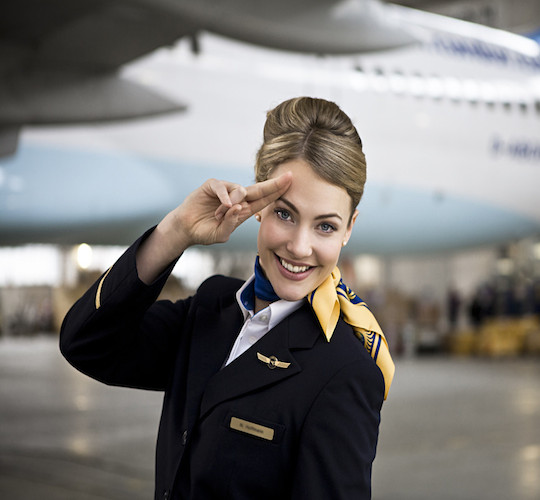The aviation industry is the backbone of the global travel trade and has seen rapid growth since the Wright brothers first flew a plane. Such is the broad spectrum of functions within the airline business that jobs are aplenty here. For those looking at flying as a career, here are some useful pointers in the direction of becoming a pilot.
The career stream that first comes to mind when we think of airlines is that of the pilot. As the captain of the craft and someone entrusted with the safety of the passengers and even the brand, clearly this is a well respected and highly paying profile. There are also the perks of going places and seeing the world. To get inside the cockpit of a commercial airliner and, for that matter, even that of any aircraft, there is a stringent education and work experience that needs to go in. Typically, a college degree is preferred but it is the mandatory flying hours – ranging from 1500 to 3000, with 300 to 500 of that coming from a multi-engine background – that is non-negotiable for anyone to start off.
How to Start
Given the large number of people who complete the course and the limited flying vacancies that come up, it is common for many to content with being a flight instructor. A few years in this role does add to the experience but for the real action and the better pay packet, most look to getting in as a regular pilot. Contrary to popular perception, it is not just the commercial airlines – whether the national and international carriers – that need pilots. There are dozens of other companies operating in the business aviation sector as well. Corporate aviation is quite popular with large business houses, government requirements and even celebrity transportation. Besides, other industries like couriers, agriculture and emergency services are in constant use of planes. This surely has opened up this sector and means that considering flying as a career option can be a smart move.
So do you have what it takes to be a pilot? What are the things to be kept in mind before you look at this professional as your preferred career goal?
- Of course, an interest in flying is a given! And that also means a passion to take to the skies as you will be spending the majority of your time thousands of feet above terra firma.
- An innate interest in machines, electronics and principles of science
- An excellent academic track record plus proficiency in English (especially true for non-English speaking people as it is widely used in global conditions
- A sharp pair of eyes with the power at 6/6 and normal hearing
- No track record of any medical condition like giddiness, blood pressure or weak heart.
- Readiness to take on challenges and ability to stay cool during pressure situations
- Readiness to work long hours, odd hours and managing multi time zones
For those who are keen to succeed, start young if you aspire to work your way up from being a pilot to reach the position of Senior Captain. In most countries, flight training can be commenced before the age of 18 and then, with a 2-3 years of flying solo, proceed to get the commercial licence.
Evidently, flying is a much sought after profession and not just for the money but also for the thrills and glamour attached to the industry. Of course, the coveted jobs all lie in the large commercial airlines. That said, the many other avenues available mean that an entry into this world is possible for the skilled and the hardworking. The challenges are many – on a daily as well as an ongoing basis – but the choice of flying as a career can be fulfilling in more ways than one.



Matt
#Good article. I agree that a passion for aviation is very important to have before considering a career as a pilot. There are many years of hard work for little pay under generally poor conditions before you get to the good lifestyle and secure income. Having a passion for aviation makes it enjoyable all the way through, those who don’t love flying either don’t make it or can’t enjoy it even if they do. Good luck to those who are brave enough to try!